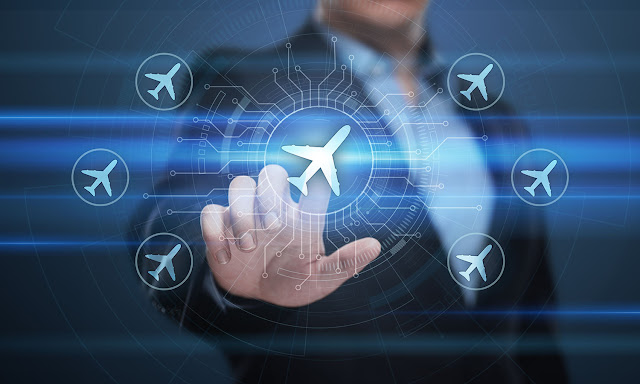Aviation Cyber Security a Growing Need for Safety of Aviation Industry
The aviation sector has reaped many of the benefits that digitalization has brought to other industries, however, it also brings risks. These include the potential for cyber attackers to snoop on or access airline data, steal passengers’ personal information and cause disruptions to flight operations. The aviation industry faces a unique set of cyber security risks due to its large volume and variety of connectivity. These threats include the threat of data theft, causing disruptions to flight operations, and a potential loss of life .Aviation cyber security solutions are vital to ensuring the safety of passengers and the integrity of air transport services. They include network and data management, cyber security training, and incident response.
Preventing a cyber-attack from entering an aviation system and taking control of a plane is crucial to protecting lives and assets, reducing operational downtime and costs, and maximizing revenue opportunities. These solutions are also critical to maintaining compliance with industry regulations and enhancing operational efficiency. A cyber-attack can impact an airline’s operational and financial health, as well as its reputation. Moreover, it can disrupt the supply chain and lead to a significant loss of productivity, resulting in lost profits and customers. It is critical to ensure that all organizations understand their cyber risk and that they have robust and proportionate cyber security processes in place. It is also crucial that they are able to respond to an attack and demonstrate that they can quickly and efficiently recover from the impact.
The global Aviation Cyber Security Market was valued at US$ 4,180.8 Mn in 2020 and is expected to reach US$ 6,810.3 Mn by 2027 at a CAGR of 7.1% % between 2021 and 2027.
This requires the establishment of aviation cyber security solutions, such as cyber incident response plans and the development of robust back-up systems and processes for storing critical data, and for ensuring that they are tested timely, with mechanisms in place for implementing lessons learned from real life incidents and exercises. As the aviation industry continues to develop, it is becoming increasingly vulnerable to cyber-attacks. This is because many complex information technology solutions, such as WiFi connections and on-board infotainment systems for passengers, are used throughout the supply chain, and they often haven’t been designed to deal with the advanced threats we’re seeing today.
It is critical to develop a holistic Aviation Cyber Security solution that addresses airplane and ground system vulnerabilities. This includes defining emerging threats, guiding incident response, and conducting forensic analysis. This approach provides a foundation for developing and maintaining an effective cyber security strategy and delivering the appropriate level of cyber response to meet the needs of airlines. In February 2023, Accenture completed acquisition of Morphus, a cyber-defense, cyber threat, and risk management intelligence services provider.


.jpg)

Comments
Post a Comment